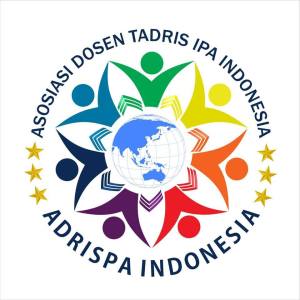REMAINING MOTIVATED DESPITE THE LIMITATIONS: SCIENCE TEACHER'S LEARNING PROPENSITY DURING THE COVID-19 PANDEMIC IN THE DEVELOPING COUNTRY
DOI:
https://doi.org/10.21154/insecta.v2i2.3452Keywords:
Covid-19, Science Teaching, Pandemic, Online Learning.Abstract
The COVID-19 pandemic has affected human life at multilevel and is still a tremendous challenge for all sectors of life without exception to education. To cope COVID-19 effects in education, online teaching and learning was adopted. This study explored how science teachers’ learning remained motivated to teach, despite all the limitations they encountered and endured during the COVID-19 pandemic. This work was carried out in developing county such as Indonesia, Rwanda, Cambodia and Paraguay. The study examines how science teachers’ in developing country have faced obstacle, and meanwhile, despite this, they are still trying their hardest to stay focused on achieving their personal goals during the pandemic. This research is geared by descriptive qualitative approach. Data were collected in series of online survey with thirty nine teachers cross the developing country. The results showed that the science teachers’ learning with e-learning was less effective because not all teachers and parents of students understood the internet. During the COVID-19 pandemic, teachers are highly required to develop e-learning science learning that can help achieve learning goals, so that e-learning can satisfy all parties, and can reduce its negative impact. Science learning with e-learning can foster educators in mastering digital technology.References
Abriata, L. A. (2021). How Technologies assisted science learning at home during the COVID-19 Pandemic. DNA and cell biology Journal, 00(0), 1-6
Academic Performance: A case study in Agartala Municipal Council Area. Bangladesh e-Journal of Sociology. Morogoro Main Campus, Tanzania. MASTERs thesis, Faculty of Education, Universitetet I OSLO, FALL 2011
Angela, C.R., Alexandra, R.P.M., Marcela, B.R.D. (2021). E-learning challenges for teaching content in environmental engineering within the framework of covid-19 experience from the state and private university in Colombia. South Florida Journal of Development, Miami, 2(3), 4480-4495.
Canese, V., Mereles, J. I., & Amarilla, J. (2021). Challenges and Opportunities for Educational Actors in light of the COVID-19 Pandemic in Paraguay. Religación. Revista de Ciencias Sociales y Humanidades, 6(28),
Creswell, J. W. (2012). Educational Research: Planning, Conducting, and Evaluating Quantitative and Qualitative Research. Boston: Pearson Educational Books
De Baryshe, B. D., Pattersoon, G. R., & Capaldi, D. M. (1993). A performance grades and educational goals. Sociological Inquiry, 59(1) 88-98
Evans, D. J. R., Bay, B. H., Wilson, T. D., Smith, C. F., Lachman, N., & Pawlina, W. (2020). Going virtual to support anatomy education: A STOPGAP in the Midst of the Covid19 Pandemic. Anatomical Sciences Education, 13(3), 279”“283. https://doi.org/ 10.1002/ase.1963
Flynn, G., & Himel, J. (2020, March 23). School closures highlight inequality in education as classes move online. Cambodianess. https://cambodianess.com/article/school-closures-highlight-inequality-ineducation-as-classes-move-online
Hattie, J., & Timperley, H. (2007). The power of feedback. Review of educational research, 77(1), 81-112
Huber, S. G., & Helm, C. (2020). COVID-19 and schooling: Evaluation, assessment and accountability in times of crises””reacting quickly to explore key issues for policy, practice and research with the school barometer. Educational Assessment, Evaluation and Accountability, 32(2), 237”“270. https://doi.org/10.1007/s11092-020-09322-y
Kim JE, Lee JH, Kang Y, Lee SH, Shin H, Rönnebeck N, Rönnebeck R, Nam EW. Depression in public officials during the COVID-19 pandemic in Paraguay: a web-based study. BMC Public Health. 2021 Oct 11;21(1):1835. doi: 10.1186/s12889-021-11860-z. PMID: 34635086; PMCID: PMC8503714.
Lewis, T.J., Hudson, S., Richter, M., & Johnson, N. (2004). Scientifically supported practices in emotional and behavioral disorders: A proposed approach and brief review of current practices. Behavioral Disorders, 29(3), 247-259. model for academic achievement in early adolescent boys. Developmental
Nyakunga, R.Z. (2011). Cost Sharing and Academic Performance: A Case of Mzumbe University,
Patterson, C. J., Kupersmidt, J. B., & Vaden, N. A. (1990). Income level Psychology, 29, 795-804.
Quezada, R. L., Talbot, C., & Quezada-Parker, K. B. (2020). From bricks and mortar to remote teaching: A teacher education programme”˜s response to COVID-19. Journal of Education for Teaching, 1”“12. https://doi.org/10.1080/02607476.2020.1801330
Rahiem, M. D. H. (2020b). The Emergency Remote Learning Experience of University Students in Indonesia amidst the COVID-19 Crisis. International Journal of Learning, Teaching and Educational Research, 19(6), 1”“26. https://doi.org/10.26803/ ijlter.19.6.1
Rasmitadila, R., Aliyyah, R. R., Rachmadtullah, R., Samsudin, A., Syaodih, E., Nurtanto, M., et al. (2020). The perceptions of primary school teachers of online learning during the COVID-19 pandemic period: A case study in Indonesia. Journal of Ethnic and Cultural Studies, 7(2), 90. https://doi.org/10.29333/ejecs/388
Raychaudhuri, A., Debnath, M., Sen, S. and Majumder, B.G. (2010). Factors Affecting Students’ The Chronicle of Higher Education, How to Give Your Students Better Feedback With Technology (2019) Vol. 7, No. 2. pp. 34-41
Raychaudhuri, Amitava, Debnath, Manojit, Sen, Seswata & Majundra, braja Gopal. (2010). Factors affecting Student’s academic performance: A case study in agartala municipal concial area. Bangladesh e-journal of sociology, vol.7, Number.2.
Sandars, J., Correia, R., Dankbaar, M., de Jong, P., Goh, P. S., Hege, I., et al. (2020). Twelve tips for rapidly migrating to online learning during the COVID-19 pandemic. MedEdPublish, 9(1). https://doi.org/10.15694/mep.2020.000082.1
Smith, T. E. (1989). Mother-father differences in parental influences on school gender, ethnicity, and household composition as predictors of children's school based competence. Child Development, 55,_1299-1307
Stichter, J., Randolph, J.K., Kay, D. & Gage, N. (2009). The use of structural analysis to develop antecedent-based interventions for students with autism. Journal of Autism and Developmental Disorders, 39(6), 883-896.
Sutherland, K.S., & Wehby, J.H., (2001). The effect of self-evaluation on teaching behavior in classrooms for students with emotional and behavioral disorders. Journal of Special Education, 35(3), 2-8
Timmons, K., Cooper, A., Bozek, E. et al. (2021).The Impacts of COVID-19 on Early Childhood Education: Capturing the Unique Challenges Associated with Remote Teaching and Learning in K-2. Early Childhood Educ J 49, 887”“901.
UNESCO. (2020). Covid-19 Educational Disruption And Response. Retrieved From UNESCO Report: Https://En.Unesco.Org/Covid19/Educationresponse/
Woolliscroft, J. O. (2020). Innovation in response to the COVID-19 pandemic crisis. Academic Medicine, 95(8), 1140”“1142. https://doi.org/10.1097/ ACM.0000000000003402








